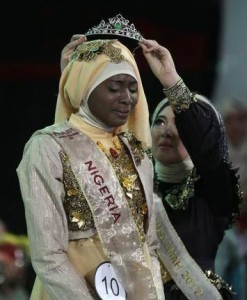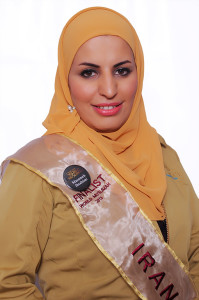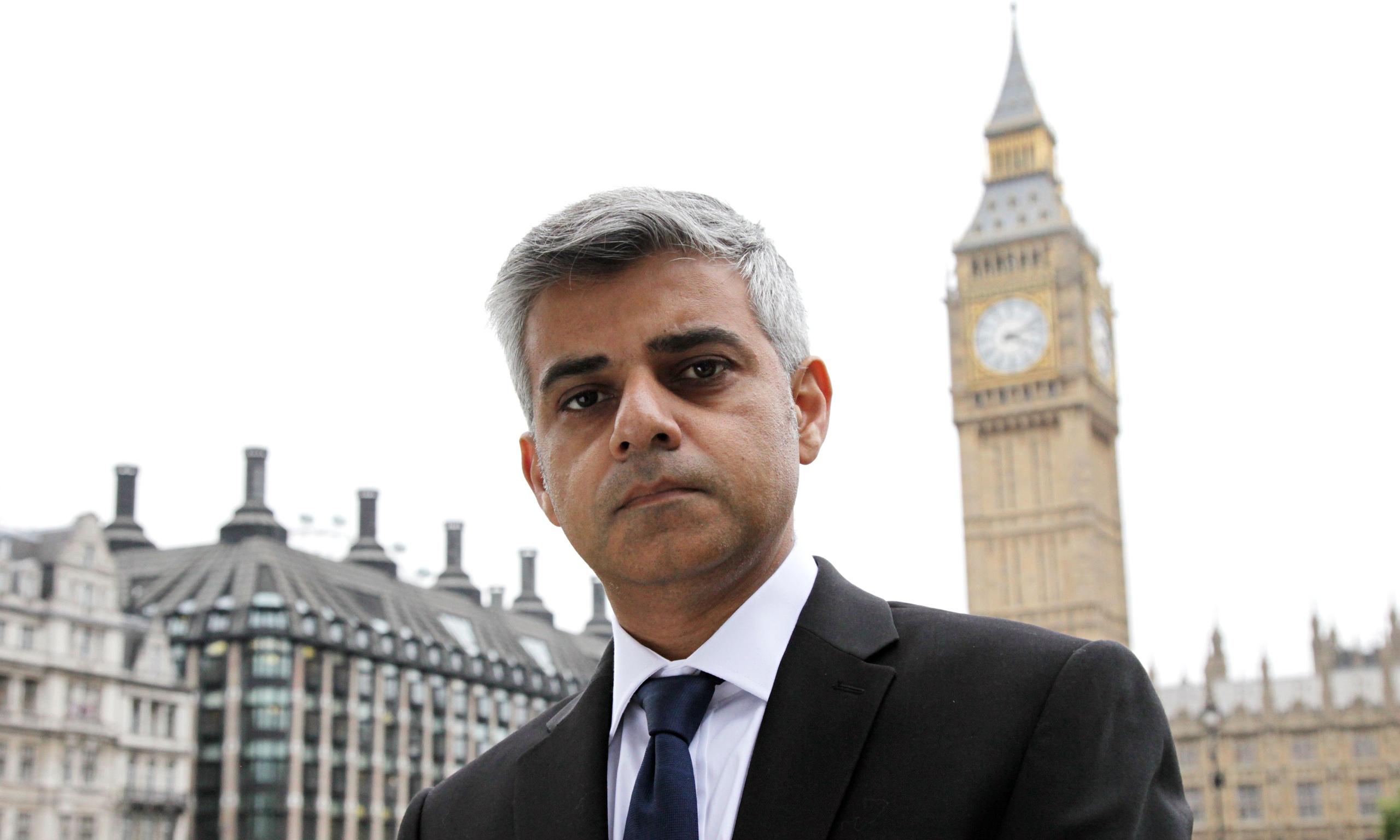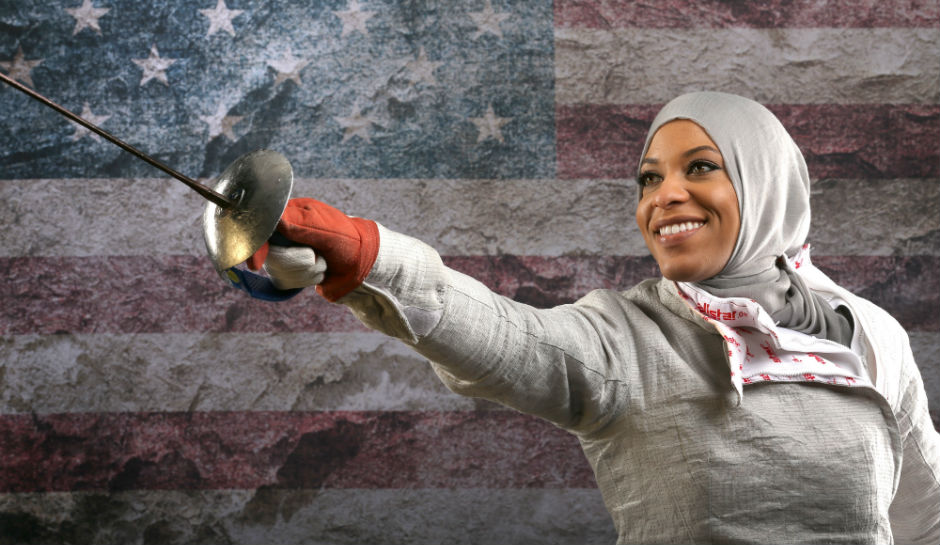
September 27-2013
Many Islamic groups have long battled against the Miss World beauty contest, which is being held in Indonesia this year.
Some want the contest driven out of Indonesia. But others are banking on a rival pageant exclusively for Muslims.
The Muslimah World contest, held last Wednesday, is “Islam’s answer to Miss World,” according to the pageant’s founder, Eka Shanti.
And one of the finalists was from Iran—Masumeh Ebrahimi, a 27-year-old with a degree in industrial management and planning.
The winner, however, was from Nigeria—Obabiyi Aishah Ajibola, a 21-year-old student at the University of Lagos. She fell to her knees and kissed the ground when she was proclaimed the winner. She won the votes of 65 of the 100 orphans who were chosen to act as the judges of the final.
Still, many Muslims likely find the very idea of a beauty contest—even if there is no swimsuit competition—to be offensive.
“Muslimah World is a beauty pageant, but the requirements are very different from Miss World — you have to be pious, be a positive role model and show how you balance a life of spirituality in today’s modernized world,” Shanti told Agence France Presse (AFP).
The pageant is the latest backlash against Miss World, which has already dropped the bikini from its beach fashion round and has attracted more than a month of protests by Muslim hardliners demanding the show be booted out of Indonesia. Miss World is a British-operated contest.
Radicals have set effigies of the organizers alight and deemed the contest “smut” and “pornographic.”
The irony that few people see is how contests for women have changed in both the West and the Islamic world. They are both shifting toward the middle and becoming more alike.

The Western beauty contest started a century ago as nothing but a rating of physical appearance. But in recent decades, physical attractiveness has been played down while poise, skills (mostly of the entertainment variety) and the ability to communicate verbally have taken prominence. Miss America contestants are required to show how they contribute beneficially to society.
Islamic events for women once went little beyond Qoranic memorization. The Muslimah World contest includes that. But it has added other aspects—and one of the added aspects is physical beauty—under a headscarf.
The Muslimah World contest is actually far more than an objection or counter to Miss World. It is really a counter to radical groups all over the Muslim world who emphasize anger at and hatred for the Western world. The philosophy behind Muslimah World is that the Islamic world has something positive to offer in compliance with its culture. It is trying to build up, not tear down.
This was the third year for the Muslimah World contest, but the first year it was open to women from throughout the world and not just Indonesia.
The finalists—one each from Iran, Malaysia, Brunei and Bangladesh, two from Nigeria and 14 from Indonesia—paraded down a runway in colorful Islamic fashions in what Shanti said was an opportunity to show young Muslim women they do not need to show their “immodest” parts — including their hair and bare shoulders — to be beautiful.
(There was also a finalist chosen from the United States, Ainee Fatima, 22. But her father suddenly took ill and she was unable to attend.)
Shanti said she did not support the hardliners’ calls to cancel the Miss World contest, acknowledging that Indonesia was a diverse country with many faiths.
“We don’t just want to shout ‘no’ to Miss World. We’d rather show our children they have choices. Do you want to be like the women in Miss World? Or like those in Muslimah World?” Shanti asked.
After repeated protests, government officials announced two weeks ago that the Miss World final would be moved from Jakarta to the resort island of Bali, which has a Hindu majority and is very welcoming to the contest.
Despite the decision, protestors from the Islamic group Hizbut Tahrir Indonesia demonstrated in the central Java city of Yogyakarta, its spokeswoman saying, “Miss World is not welcome in Indonesia at all.” But only a radical minority is protesting.
The decision to move the final round was the latest victory for Islamic fringe groups, who are wielding increasing power and have succeeded in getting several events they deem un-Islamic changed or canceled in recent years.
In the rival Muslimah World pageant, contestants were selected based on the three “S” criteria: They must be smart, pious (sholeha) and stylish. Style included fashion and beauty. They must also show some academic, athletic and cultural achievements.
Aspiring contestants sent their applications online, including an essay and a video showing their Qoran reading proficiency. They must also abide by the strictures of hejab, or modest clothing, in daily life. Judges then selected 100 applicants for the semi-final, which were then winnowed down to the final 20 who appeared last week.
At a resort with a large mosque featuring a blue dome and minarets in the West Java district of Subang, the finalists underwent grueling religious and social activities for several days. They woke up at 3 a.m. to perform morning prayers, had lunch with orphans, and attended classes in Islamic finance, parenting and the Qoran.
“It’s an amazing program and I’m so excited,” said Nigerian contestant Aisha Aderonke Adeshina, a 21-year-old pharmacy student at the University of Lagos.
“It’s very different from Miss World because their contest is about beauty, while here we have a contest for the beauty inside,” said Adeshina, who wore a black flowing dress and a headscarf with red and white floral motifs. “But as the Qoran says, let them do theirs and we do ours. It’s only the [display] of aurah [forbidden parts of the body] that I’m against.”
The American chosen for the finals is seen photographed with former US Secretary of State Hillary Clinton in her promotional video posted on the pageant’s website. She said her work on promoting interfaith tolerance has won government recognition.
“Since I began wearing the hejab, it offered me confidence to speak out on issues that I am passionate about and share my struggles as a young Muslim woman who lives in the United States,” Fatima, who studies at DePaul University in Chicago, said on the website.
The winner receives 25 million rupiah ($2,200), a trip to Saudi Arabia to perform a pilgrimage, and junkets to Turkey and India. The crown holder will also serve as a humanitarian ambassador for underprivileged women in the Muslim world, Shanti said.
Muslimah World 2014 will be held in Brunei, inshallah.
Indian named
Miss America
Nina Davuluri, a New York-born woman with parents from India, was named Miss America last week, the first Hindu to win that honor.
In the blogosphere, many commenters showed their ignorance by declaring her to be an “Arab” and condemning her as a “terrorist.” One said she wasn’t Miss America, but “Miss al-Qaeda.”
However, the Miss America office said it was flooded with more requests to have Miss America appear at events than it has received in many years as most Americans, who had generally lost interest in Miss America in the last decade, showed great interest in Davuluri and her background.
In India, a common comment was that Davuluri could never win a beauty contest there because her skin is too dark for a country that sees white flesh as a sign of beauty.






















